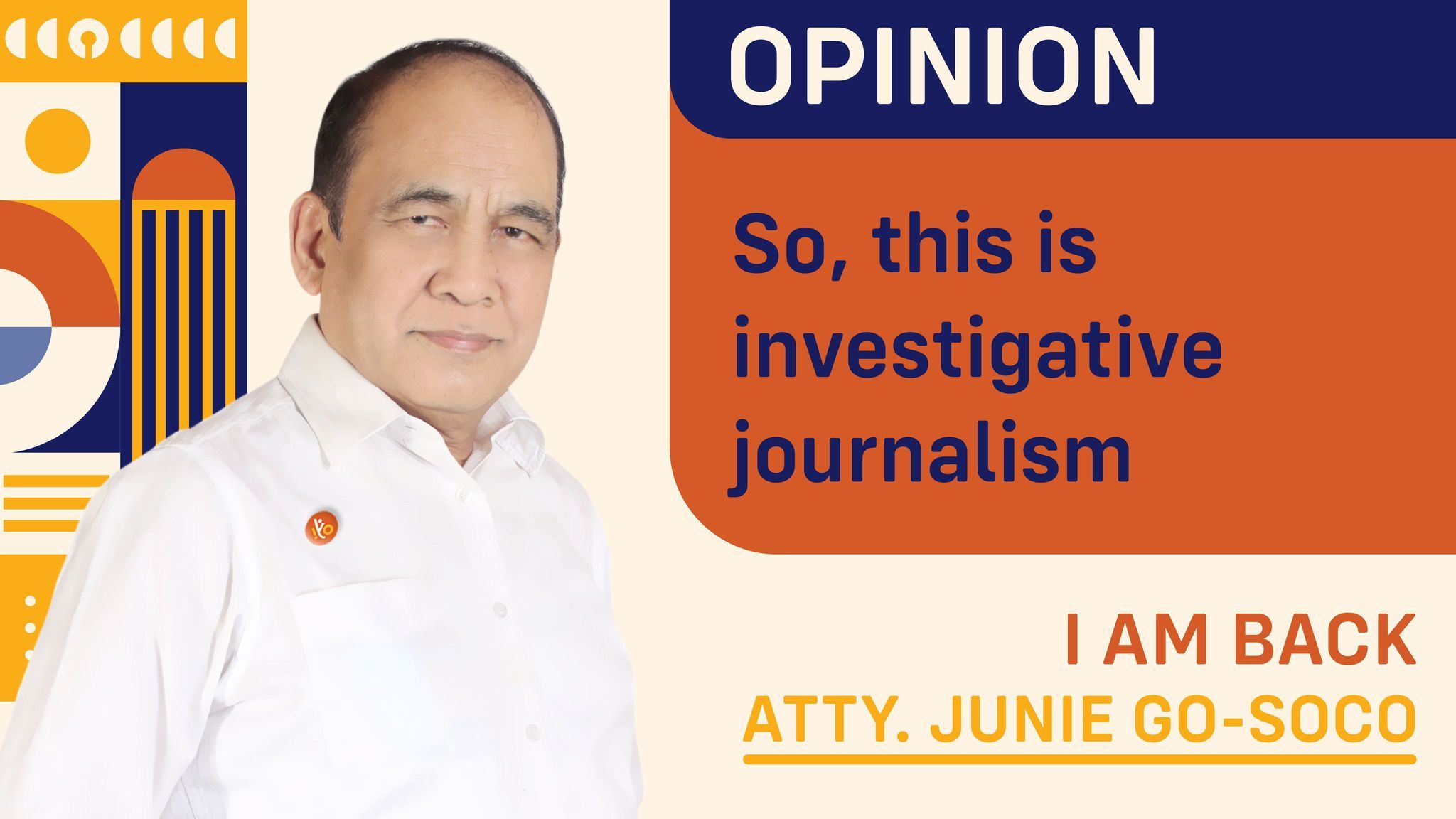There is something thrilling about going deep into a story especially if the effort is about a project that is relatively huge that it makes the task both daunting and inspiring.
My continuing data gathering on the Tacloban Airport Development Project gives me the feeling that there is a need to go slow because of possible unintended implications but at the same time it gives an inspiring feeling that an effort like this will reap dividends for the progress of this region. However, while I am conscious of the economic benefits that the project will provide, the lawyer in me tells me there is a legal angle that I should pursue. Still another one is the merger of the two. My involvement in multi-media tells me that it is my duty to tell the public what is happening and what could happen both from the economic and legal perspectives.
For one, talking from a private sector orientation is much easier than defending government projects and policies. I have more freedom. I feel I can say things I could not say when I was in government.
There seems to be an unwritten rule that says government officials in the executive branch should cooperate with each other and should not criticize each other. They must show unity, not divergent views.
As a private sector member of the Regional Project Monitoring Committee of the Regional Development Council, I feel like I have more freedom to point out problems in project implementation.
Going to the title of this column, I find myself doing an investigative type of journalism as I try to bring to the public a view of the Tacloban Airport’s economic significance and the possible legal implication s of what is happening in this project.
I guess the point is that it is difficult to separate economics from the law when aspects of both interact. For example, the Procurement Law is in place because the government wants to efficiently use its funds. This policy of efficient fund use is, in turn, an effort to improve the economy. The rules on the procurement of government infrastructure projects are supposedly crafted to make sure that public interest is protected; that funds collected from taxpayers do not go, for example, to the pockets of engineers and local elective officials.
The line of reasoning goes like this: the more I look at the data and the information being provided by the Civil Aviation Authority of the Philippines, the more I understand and realize that the procurement law and related rules need to be improved. This enhancement will prevent a government project from being so dismally implemented that there is no other conclusion except to say that government officials can easily circumvent the law or use the law for perverted ends.
I don’t know if it is the system which needs to be overhauled in one sweep or that gradual and incremental improvement will be enough.
At this point of my little foray into this mess that is the Tacloban Airport Development Project, I am sure the Procurement Law and the corresponding agency circulars to implement it need to be improved.
But how can these changes be possible when the people who will change them might be benefitting financially from it?
Good question.
#IAmBack #JunieGoSoco #SoThisIsInvestigativeJournalism #TaclobanAirportDevelopmentProject #Tacloban #Government #RegionalProjectMonitoringCommittee #RegionalDevelopmentCouncil #RDC #TaclobanAirport #CAAP #OpinYonColumn #OpinYon #WeTakeAStand

